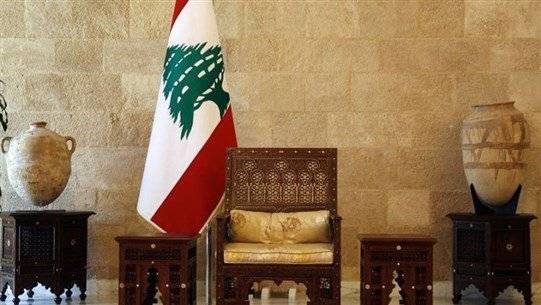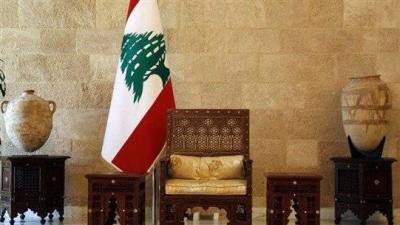The presidential election has entered the arena of real confrontation with the approaching constitutional deadline for the election of the next president, which begins on September 1 and ends on October 31. However, uncertainty remains dominant despite the positions issued by various factions, some of which are merely bubbles that lose value as the settlement nears and the train of real solutions in the country gets underway.
Amid this, Maronite Patriarch Bechara Boutros Al-Rahi renewed his call for the election of a president capable of rescuing the country from its crises and restoring trust in Lebanon, as it was before the crisis began. The fever of meetings and communications has started in search of a person who embodies the characteristics of a savior from the crisis.
Political sources indicated through the electronic newspaper "Al-Anbaa" that the shares of traditional candidates have declined in favor of a candidate capable of lifting the country from its plight, which of course requires doubling the efforts of sincere political forces that prioritize Lebanon.
The sources considered that the initiative by Progressive Socialist Party leader Walid Jumblatt for dialogue to reach an agreement on the candidate for the presidency seems more realistic and can serve as a foundation to exit this impasse, especially since Patriarch Al-Rahi aligns with Jumblatt's views regarding a candidate that could unify perspectives.
MP Ahmad Rustom expressed hope in an interview with "Al-Anbaa" that an agreement would be reached on the presidential candidate and that a new president would be elected on time, while expressing concern over the potential failure to complete this process, leading the country into a vacuum. He emphasized that the Lebanese are tired of the vacuum and seek a president capable of rescuing the country from collapse. He specified that the new president should have a special and excellent relationship with Arab brothers, especially the Gulf states, and should not come from a party background, as that would cause them to remain captive to their party's will.
Meanwhile, the presidential issue occupies Maarab, where Lebanese Forces leader Samir Geagea held a press conference regarding the developments in the file. Communication and Media Officer in the Lebanese Forces, Charles Jabbour, noted that the opposition team has begun holding both public meetings and behind-the-scenes discussions to prepare the atmosphere for a unified stance on this issue.
In an interview with "Al-Anbaa," he stated that this dynamic is moving in the right direction and that there is clear agreement among most of these components on the necessity of reaching a unified stance on the presidential level, adding, "Regarding the Lebanese Forces, Geagea emphasized the necessity of agreeing to actually find a new president. All this dynamic is met with complete silence from the March 8 coalition, which seems confused as it has not relied on any candidate while waiting for Hezbollah to clarify its position, hoping that the presidential issue would be a gateway to salvation."
While Jabbour stressed that the individual nominated for this position should not be subject to the influence of weapons, he described the communication between Jumblatt and Al-Rahi as flowing in this direction, adding: "When the dynamic of consultation and meetings begins, it is bound to reach the desired conclusions in the end; what matters is that the dynamic has started."
In light of this escalating confrontation, possibly leading to a phase of vacuum, what remains most important is to bolster the resilience of the Lebanese in facing the crisis, and the government must fulfill its obligations even while it is in caretaker status. It was reported that President Najib Mikati has invited ministers to a discussion session today, Tuesday, which could serve as an entry point to activate the cabinet's work to face the upcoming challenges, particularly the living and social crises.




